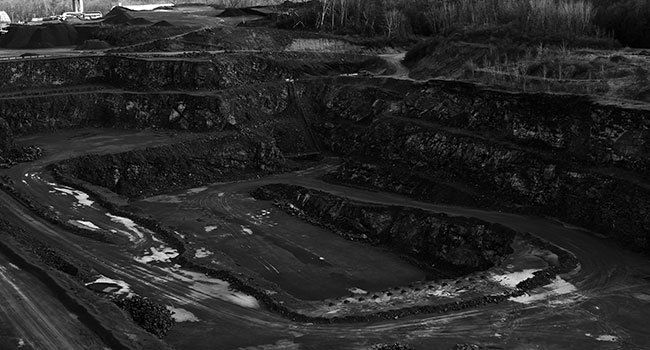 Desperate times sometimes lead to catastrophic measures.
Desperate times sometimes lead to catastrophic measures.
In Alberta, the beleaguered provincial government is in a financial situation that could be characterized as desperate, suffering from the double-whammy of collapsed resource revenues and, of course, the massive spending required to address the social wildfire known as the COVID-19 pandemic.
The desperate measure that the United Conservative government has chosen, however, will have permanent consequences for this province.
The government of Premier Jason Kenney has decided to end a 44-year moratorium on open-pit coal mining in southern Alberta, and to allow companies to rip into the pristine mountainsides of the Livingstone Range in the Crowsnest Pass area to mine the high-quality coal encased there.
Take note, all you pipeline haters: In a time when climate change is disrupting the world, this cash-starved government is encouraging the development of mining the filthiest fossil fuel known to man, and the irreparable scarring of one of the most iconic landscapes – not just in Alberta, but in all of Canada.
The moratorium on coal mining in the area dates back to 1976, when the Progressive Conservative government of the great Peter Lougheed adopted its Coal Development Policy. Recognizing the unique value of the iconic landscapes, the policy restricted open-pit mines in the Rocky Mountains and Foothills. The last southern Alberta mine closed in 1983.
It should be noted that Lougheed’s government had the luxury of growing oil and gas revenues. No doubt, it’s easier to be a good steward when the coffers are full.
Mining companies, however, were undeterred by Lougheed’s ban. They simply shifted operations west into the “friendlier” territory of British Columbia. In B.C’s Elk Valley, Teck Resources operates five mines, producing the majority of the province’s mining revenue. And folks, what those mines have done to the landscape isn’t pretty.
Alberta’s economic loss has been B.C.’s gain. In 2019, B.C. – yeah, that supposedly green, Prius-driving province – exported $6.7 billion in coal to hungry markets around the world.
Now, am I the only one, or do you find it appalling that British Columbia’s lower mainland residents fight tooth-and-nail to block pipelines, while Victoria discharges raw sewage into the ocean, the province’s top export is coal, and the interior of the province is “open for business” on a scale that would be inconceivable in Alberta?
Yep, B.C. is pretty bipolar on environmental issues. They’re ‘agin’ anything Alberta does, but if gutting its own interior will boost provincial revenues, then the regulators seem more than willing to turn a blind eye.
Alberta’s decision to allow coal mining is a clever divide-and-conquer strategy. Ranchers who have willingly sacrificed property values to preserve their land are being pitted against the economically depressed towns like Bellevue and Blairmore, where jobs dried up when the mines went away.
You can understand why some of those residents would find the prospect of high-paying jobs and job security mighty appealing.
So, here’s the dilemma: Residents of southern Alberta stand to gain high-paying jobs, the provincial government stands to reel in some substantial resources revenues, and the pressure on the province’s deficit will be eased somewhat.
In the short term.
In the longer term, we know that coal doesn’t have much of a future. While there are lots of markets around the world for Alberta’s coal today, in the longer term those markets will dry up and those boomtowns will once again go bust.
In exchange, Alberta will be permanently ruining the very landscape that Premier Lougheed recognized nearly half a century earlier as irreplaceable. And it will allow processes that are known to introduce toxic runoff into the environment.
Goodbye future tourism potential. Goodbye – dare I say? – a value system that once placed the environment ahead of short-term financial interests. Hello, once again, boom-and-bust exploitation.
Albertans are in a desperate way financially. Allowing new coal development, however, is no solution. It’s like the heroin of economic policy – a financial drug that will deliver a wicked hangover. Let’s break the cycle.
Veteran political commentator Doug Firby is president of Troy Media Digital Solutions and publisher of Troy Media.
The views, opinions and positions expressed by columnists and contributors are the author’s alone. They do not inherently or expressly reflect the views, opinions and/or positions of our publication.


